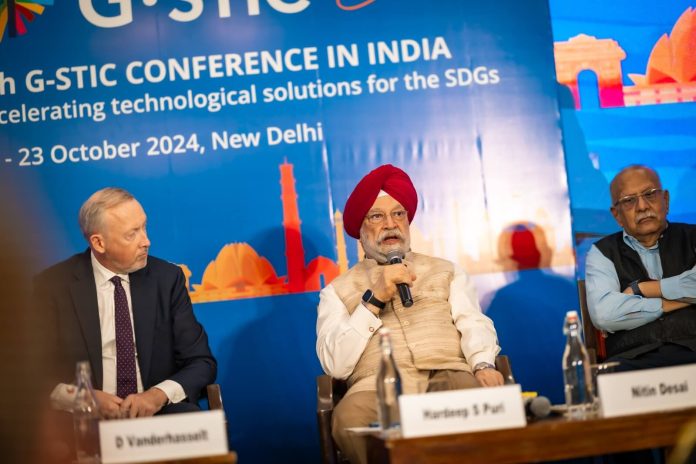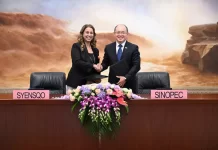
The seventh edition of (G-STIC) Sustainable Technology Summit and Innovation Community Conference was inaugurated in New Delhi, marking a significant step towards aligning technology, policy, and business strategies for sustainable development.
The G-STIC Sustainable Technology Summit is organised by TERI (INDIA), VITO (a research organisation in sustainability and innovation from Belgium) and other co-hosts. The event brings together policymakers, industry leaders, and experts to explore innovative solutions addressing climate change, resource scarcity, and economic development challenges.
Hardeep Singh Puri, minister of petroleum and natural gas, government of India, and His Excellency Didier Vanderhasselt, Ambassador of Belgium to India, inaugurated the conference. The minister emphasised the role of biofuels and green hydrogen in India’s energy transition.
Puri said, “India’s biofuel story started in 2006, with 1.5% blending against the target of 5%. Moving forward, we achieved a 10% target in November 2022 and are on track to achieve 20% blending by 2025. We are already discussing the post-20% blending roadmap”. Puri also highlighted the importance of technology scaling and the economics of energy transitions, particularly in the Indian context.
The minister stressed the need to address the energy demands of developing nations, particularly in the global south, where many countries remain heavily reliant on energy imports. He expressed optimism that India’s success with ethanol initiatives could serve as a model for these regions.
However, he noted that, unlike Brazil, India faces limitations due to its scarcity of arable land for large-scale biofuel production. Despite this, he underscored the potential for innovative biofuel strategies to reduce import dependency while meeting local energy needs. In addition to biofuels, the Minister highlighted the growing importance of green hydrogen as a transformative energy solution.
As the world accelerates toward a low-carbon future, green hydrogen is emerging as a pivotal component of the global energy transition. Its potential to decarbonise industries, power clean transportation, and provide energy storage makes it essential for achieving sustainability goals.
At the conference, experts explored strategies for developing green hydrogen markets, ensuring secure offtake, and addressing the cost challenges currently hindering large-scale adoption. The discussions focused on reducing risks for investors and producers, positioning green hydrogen as a key pillar for a sustainable energy future.
Puri focused on the potential of green hydrogen as a game-changer for India’s energy landscape. He outlined the importance of local demand, production, and consumption in making green hydrogen a viable energy source. As per the press release, the key challenge, he noted, remains in reducing the cost of production, and he called for ongoing innovation and scaling of technology in this sector.
His Excellency Didier Vanderhasselt Didier stated, “In India, VITO is involved in many projects, the most crucial being mapping and adaptation in cities to mitigate urban heat stress. Success in these areas depends on collaborative and collective efforts supported by strong business models. Building bridges between research and the private sector is crucial, which is something we will see happen in these two days”.































